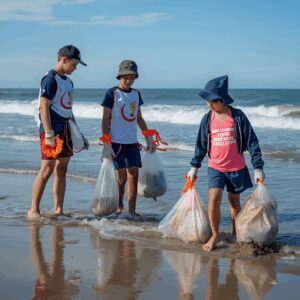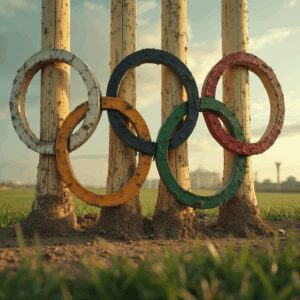Time for new approaches to Vincentian sport
For two years St Vincent and the Grenadines has joined much of the rest of the world in the struggle to find and implement appropriate responses to addressing the coronavirus as it mutated several times over.
The scientific community has had its hands full engaging in research, in the hope of getting a handle on the critical causal factors, behaviour, possible predictions and treatments in respect of the coronavirus.
Even as we write this Column, the jury is still out in respect of just how confident the scientific community is in respect of knowledge and understanding of the coronavirus and its long term impact on the human condition.
One thing is certain. As we reflect on the impact of the pandemic over the past two years and counting, we have witnessed a significant loss of life and an array of opinions, scientific and otherwise in terms of the response of people across the entire world.
There have been several missteps along the way at the level of the World Health Organisation and its several agencies, governments and the scientific and health communities.
Today, while the world seems to be in a better place, nations are still bitterly divided.
Some may well suggest that the invasive nature of the international media and their penchant for controversy have played a major role in fuelling the discord that continues to negatively impact societies everywhere.
Even as the world claims to have made significant advances in knowledge we have all become far more aggressive and perhaps, more than a little selfish, in our insistence that we can all arrive at our own answers to whatever ails us. We are certainly much more cynical about everything that happens around us, laying claim to our own growth in intelligence.
Today, we live in a world where, perhaps more than ever before, we can say with confidence that life is such that ‘even the devil quotes scripture’ with confidence and immeasurable passion.
Sports Lockdown
Like so many other countries, many utterly in a state of panic and fear, St Vincent and the Grenadines hastened to put in place measures that they saw others adopting, in the hope that the pandemic would be short-lived.
Of course, one of the early actions was the veritable shutting down of sporting activity.
The vast majority of national sports associations, themselves fearful of possible recrimination, imposed their own cessation of activities in response to the cautions pronounced by the authorities.
But some sporting bodies argued and still do that there were inconsistent messages being placed in the public domain.
In the Caribbean in particular, the politicians, the Heads of Government that constitute the leadership of CARICOM, were running about like ‘headless chicken’, all ‘bemused, bothered and bewildered’. Like so much else in the region, the CARICOM Heads each turned in a different direction, looking for answers and help anywhere possible. The end result was a cacophony of protocol measures as varied as the culture of the societies that constitute CARICOM. This may well explain why there has been no common coherent policy amongst CARICOM member states in response to the pandemic. It is as though the heads of government were each trying to outdo the other.
In the midst of everything, sport was made the scapegoat.
On the one hand, sportspeople were reminded that physical exercise aids in enhancing the health status of the individual and that the outdoors are also helpful in combatting health challenges. Yet, they found that they were not being allowed to practice sport. This continued even where the national sports associations had established mechanisms that were intended to ameliorate the situation while allowing their sports to continue.
Unfortunately, the fear drove authorities to ever more stringent methods that essentially stifled the vast majority of sports.
Happily, some sports survived by continuing with much caution.
Some may recall that in the lead up to the Tokyo Olympics, a decision was taken to postpone the mega event by one year. During the period, time was used to engage with the medical scientists who were busying themselves with approaches to contain and eventually defeat the virus and its deadly impact.
The International Olympic Committee brought numerous agencies and professionals together to produce a series of what was labelled, ‘Play Books’. The latter were updates on approaches to preparing for the Games in an environment that would have allowed athletes and other stakeholders to be healthy enough to participate safely in the Games.
Each edition of the PlayBook advanced a step or two more towards the realisation of the Games in a safe and healthy environment.
The successful hosting of the Tokyo Olympics in 2021 and the absence of any Games-related deaths, reflected a wholesome truth that with appropriate caution, sport can be practised in the most competitive of environments that also offered the protections needed.
The International Olympic Committee is, however, not the only international sports organisation that engaged in significant strategies to combat the impact of the pandemic on their respective events.
Athletics events continued throughout the pandemic, albeit in different formats. There were competitions across the globe that were brought together virtually, maintaining the excellence for which the sport has long been recognised.
The USA’s NBA created a huge bubble in order to guarantee the playoffs of the competition in 2021.
All across the globe, sporting organisations were at the forefront of the challenge to the seeming capacity of the virus to stymie the engagement of youth in physical activity and sport. Sport proved perhaps the most resilient aspect of a global society.
Time to move on
This is not an attempt at belittling the efforts of those in authority who have insistent on the application of the most stringent of approaches used to combat the coronavirus. Instead, it is a recognition that we are all getting better as the struggle with the virus. More people are engaging in healthy practices that are working to the betterment of their resistance to it.
Now appears to be the time to get back to physical activity and sport in full.
The world has come to acknowledge that what we are seeing is a continuance of variants emerging but that they are getting weaker even if more transmissible.
Thankfully, we are all getting better prepared for the projected changes ahead and there is reason to believe that those who are physically fit are most likely to stand firm in resistance.
In St Vincent and the Grenadines, some national sports associations have fallen into a state of disorganisation. While for some the challenges of being viable institutions may have started long before the onset of the pandemic, for others blame can be squarely placed at the feet of the coronavirus and the responses of the local authorities.
The fear factor drove the authorities to, at times, opt for rather clumsy and unscientific responses, leaving the public at large scared into uncertainty.
A wholesome, clearly enunciated policy framework for responding to the spread of the virus in a manner that was decidedly inclusive rather than exclusive, was never on the cards.
The failure to have open, meaningful dialogue did not help.
On the prompting of at least one national sports association, the National Olympic Committee brought together all of its affiliates in an attempt to craft a unified approach to the re-opening of sport, training and competition, arguing that sport is beneficial to all of our people and that the young people, in particular, ought not to be committed to a penned-up lifestyle that impacts emotional stability.
Exposed to a variety of opinions, the meeting yielded a compromise approach that has been presented to the governmental authorities that reflects a coming together of protocols derived from the experiences at home and abroad by sporting organisations and the local situation.
Sports associations are an important component of what constitutes Vincentian society. These national governing bodies for sport take their responsibilities seriously since they emerge from their mandates to make meaningful contributions to the human condition in society.
The idea is that sport must have a voice in what happens in Vincentian society and that it is using that voice as a collective, rather than individually, to facilitate a unified stance, going forward.
Indeed, the approach undertaken augurs well for the institutionalising of a process to decision-making by national sports associations on a range of issues that may warrant their inputs in the future.
Critical to the success of any agreed compromise is a commitment by our national sports associations to ensure consistent monitoring and evaluation of the application of the established protocols and the taking of appropriate actions where and when deemed necessary.
The National Olympic Committee sees its role as embracing the national sports associations that constitute its membership, and using the forged unity to create an annual vibrant and diverse yet clearly developmental sports programme that would ultimately yield immense benefits to the broader national economic and social wellbeing.
History is replete with examples of how the germination of a small, simple idea can often lead to grand, sustainable projects that enhance society.
There is reason enough to believe that the coming together of national sports associations could lead to a major breakthrough, not only in reopening sport in the face of the pandemic but more importantly, in the ushering in of a new era in Vincentian sport.






